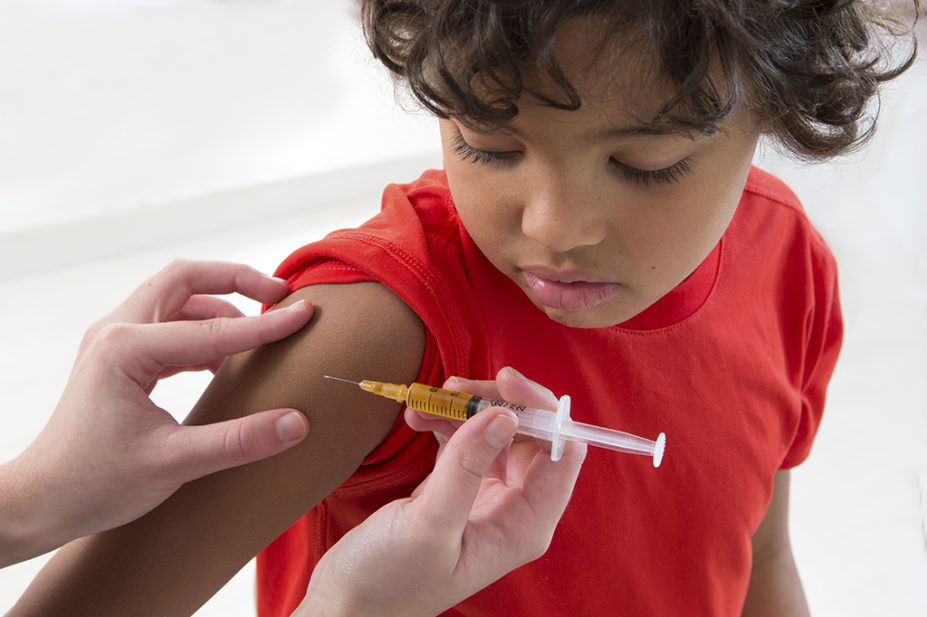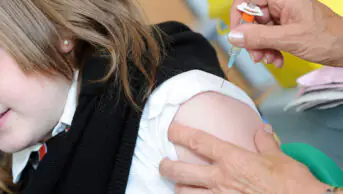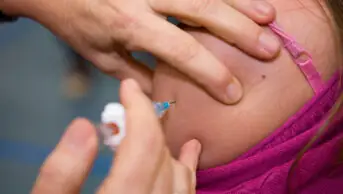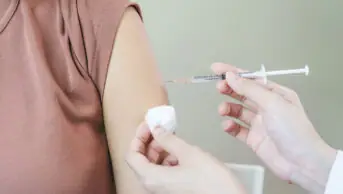
Shutterstock.com
Children aged one to nine years in London will be offered a polio vaccine dose to reduce the risk of infection, after poliovirus was detected in sewage in north and east London.
NHS London will contact parents when it is time for their child to be offered the inactivated polio vaccine. They will be offered either an additional booster, if they have received all scheduled doses, or a catch-up dose.
Parents of children who are not up to date with their routine vaccinations can book an appointment with their GP surgery now.
The campaign, launched on the advice of the Joint Committee on Vaccination and Immunisation, is a response to the discovery of type 2 vaccine-derived poliovirus in the sewage of eight London boroughs, thought to originate from someone vaccinated with a live virus vaccine overseas. The live vaccine is not used in the UK.
Traces of poliovirus were initially found during routine sampling at Beckton sewage works in east London. Further upstream sampling has found poliovirus in samples in Barnet, Brent, Camden, Enfield, Hackney, Haringey, Islington and Waltham Forest. Lower virus concentrations have been found to the south and east of Beckton.
In a statement announcing the vaccination campaign, the UK Health Security Agency (UKHSA) said that childhood vaccination rates are lower in London than the rest of the UK — particularly in the boroughs affected, which will be prioritised in the new vaccination campaign.
Many European countries offer an additional polio vaccine dose as part of their regular schedule of childhood vaccinations.
Poliovirus poses little risk to people who are vaccinated against it and there have been no confirmed cases of polio linked to the circulating virus. The vaccine being offered by the NHS — the inactivated polio vaccine — does not cause poliovirus to spread.
The level of poliovirus found in the samples and the genetic diversity between samples means the virus may now be transmitting between people in the eight boroughs affected.
Polio is a serious infection and can cause paralysis. The last case of polio in the UK was in 1984.
Vanessa Saliba, consultant epidemiologist at the UKHSA, said: “We know the areas in London where the poliovirus is being transmitted have some of the lowest vaccination rates. This is why the virus is spreading in these communities.”
She added that the additional vaccine dose for children “will ensure a high level of protection from paralysis. This may also help stop the virus spreading further.”
Steve Barclay, health and social care secretary, said: “I recognise parents and guardians will be concerned about the detection of polio in London. However, I want to reassure people that nobody has been diagnosed with the virus and the risk to the wider population is low.
“Vaccines offer the best defence to children, and those around them, so I would encourage families to ensure they are up to date with their routine jabs, and to come forward for the polio booster as soon as they are contacted by the NHS.”
The UKHSA is currently carrying out sewage surveillance at eight sites across London.
A further 15 sites in London will start sewage sampling in mid-August 2022, and 10–15 sites nationally will be sampled to determine if poliovirus is spreading outside of London.


